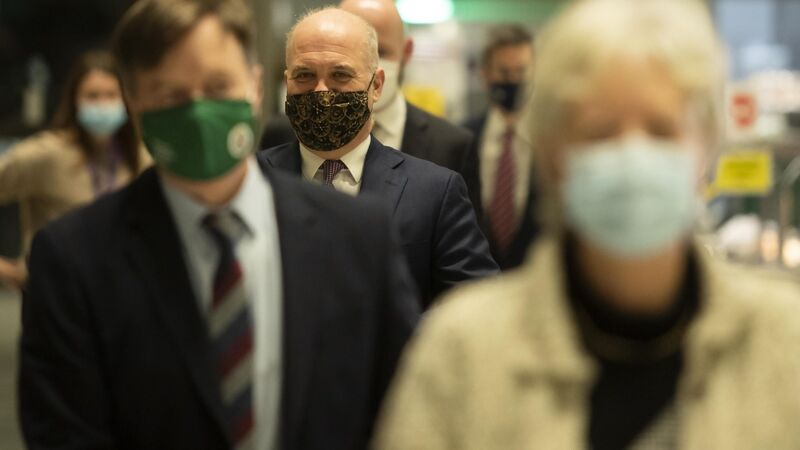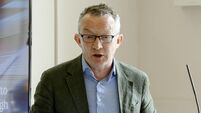HSE in talks with private hospitals as Covid-19 poses greatest threat to date

Discussions with private hospitals have been ongoing, which will see the transfer of some cancer care to private hospitals to free up beds in public hospitals. Picture Colin Keegan, Collins Dublin
The HSE’s national director of acute operations, Liam Woods, has said he has not seen a threat to the health service on the same level as the current Covid-19 crisis.
Discussions with private hospitals have been ongoing, he told RTÉ radio’s , which will see the transfer of some cancer care to private hospitals to free up beds in public hospitals.
“We are already doing some of that. There has been a lot of co-operation from the private sector.”
The key point was to create capacity which had led to the cancellation of all non-urgent procedures, he said.
Mr Woods said that the projections of the numbers who will need hospitalisation are of more concern than during the first wave.
However, preparatory work had already been carried out last March and April with regard to the supply of ventilators and oxygen.
The number of intensive care beds available today was 287, he said.
These were fully staffed and available within the public system and if necessary that number could increase to 350 beds with extra care capacity.
While more physical intensive care beds could be available in some hospitals the issue was the shortage of trained staff to “run” these beds.
Staff could be redeployed from other areas within the hospitals, significant training was being done, but it would not make up for fully qualified staff.
Mr Woods pointed out that all times there were far more people in hospital with non-Covid conditions and who could need an ICU bed, which emphasised the importance of the co-operation with the private hospitals.
Responding to a question about the number of frontline staff who are, at present, themselves off work with Covid-19, Mr Woods said that in a normal winter the figure could be three to four per cent of HSE personnel.
At the peak of the Covid crisis last year, 5,000 staff were off work due to the virus.
Fortunately, the low trolley numbers and the fact that no flu cases have been reported had eased some of the usual winter pressure on services, he said.





